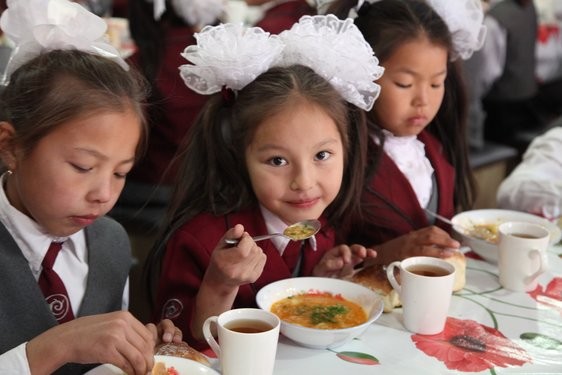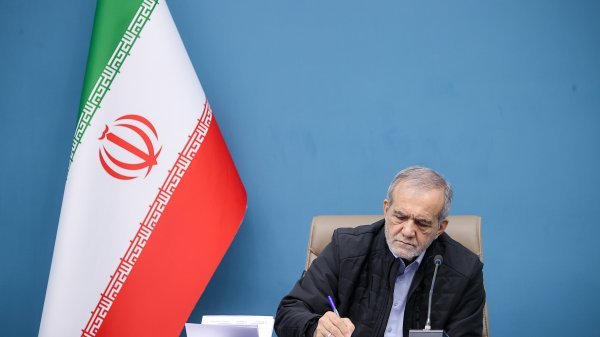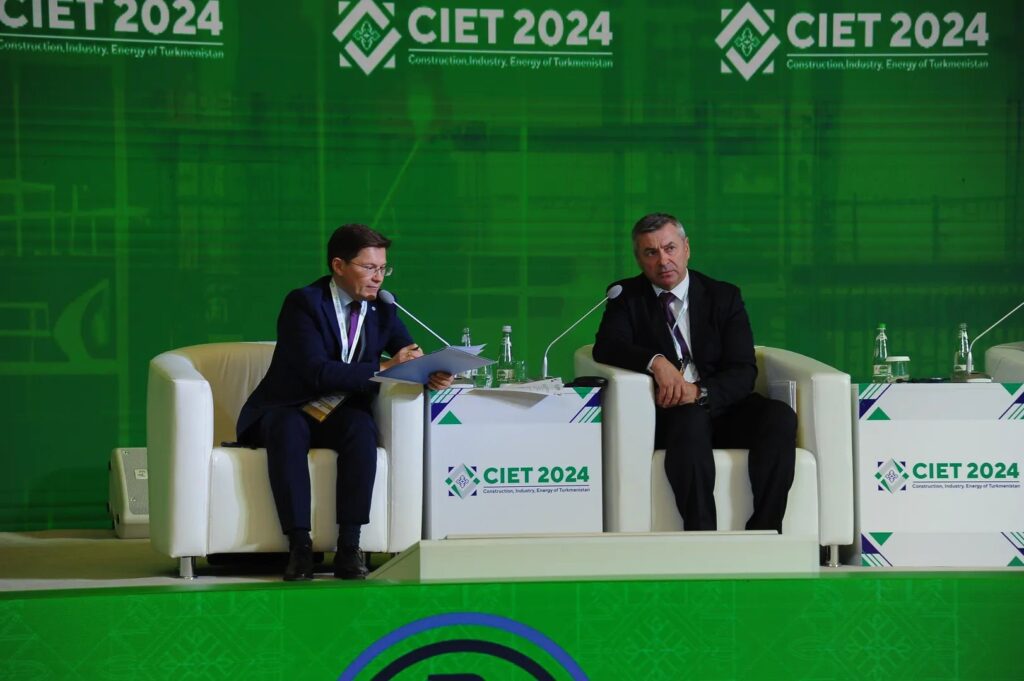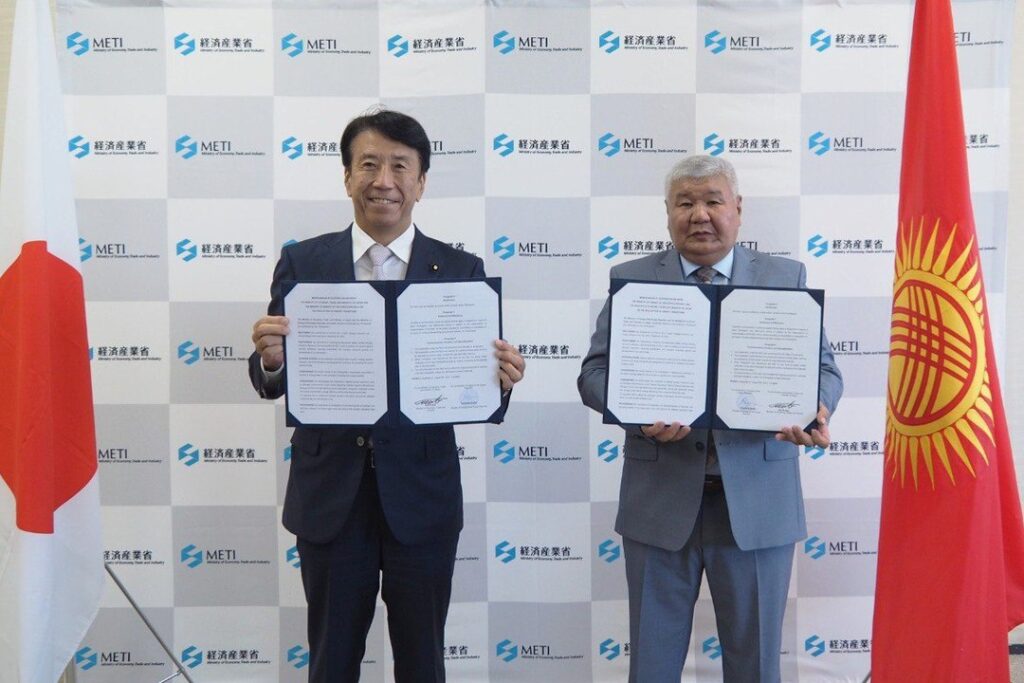BISHKEK (TCA) — Signaling a fresh start for the new academic year, 16 rural schools in Chui and Issyk-Kul provinces of Kyrgyzstan have started with hot meals for 5,000 primary school students. This development — part of a School Meals Optimization project begun in 2013 — has been made possible by funding from Japan and the technical expertise of the United Nations World Food Programme (WFP).
“Throughout the 100-year history of school meals in Japan, we have recognized the importance of educating healthy and productive generations,” said Japan’s Ambassador to Kyrgyzstan, Yoshihiro Yamamura, at the launch of the expanded program in Bishkek. “A Gakko Kyushoku – a school lunch – helps develop communication skills, boosts intellectual curiosity and promotes life-long, healthy eating habits.”
The contribution from Japan, amounting to 5.8 million Kyrgyz som (approximately US$83,000), has allowed the schools to buy industrial kitchen equipment, including electric stoves, multi-deck ovens, dough-mixing machines, refrigerators and water boilers. WFP provided advice on the design of the meals, training of the school chefs, and improvement of water and electricity supply to the school.
“We are proud that WFP’s solutions to improve national school meal in the Kyrgyz Republic are receiving widening support from government and donors,” emphasized WFP Kyrgyz Republic Deputy Country Director Keiko Izushi. “The government’s support and their interest in implementing this across the country ensures the sustainability of the program as well as reaching as many children as possible.”
Recognizing the success of the 16 pilot schools in introducing hot school meals, the local authorities in Chui and Issyk-Kul provinces have created plans for improving school meals across the whole of their provinces. The local authorities themselves will purchase the required kitchen equipment and renovate the school dining facilities. It is expected that, in total, some 50 schools in these two provinces could start providing hot lunches during the coming academic year.
In coordination with the government, WFP in 2013 began a School Meals Optimization project to expand the national school feeding program. This has so far benefitted some 90,000 primary school students in 334 schools, almost four times the number of students in the first year of the project. Thanks to donor support, the number of schools enjoying hot meals is constantly increasing.









